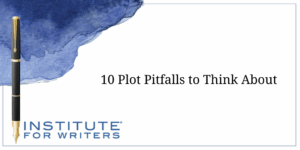
10 Plot Pitfalls to Think About
Plot can be tricky, and, as a writer, you need to be aware of what makes or breaks plot. Take a look at 10 different things to avoid in your own writing.
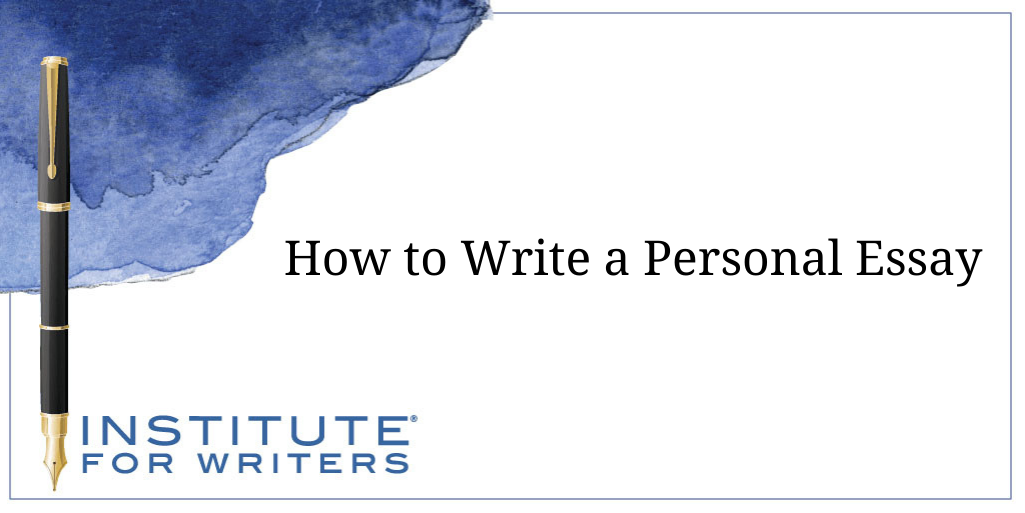
We teach our students how to write and get published!
View our Course Catalog >
Essay writing offers endless opportunities for personal expression, whether you choose to write about serious topics like social problems, politics, or family life, or your interest lies in lighter subjects such as humor or reminiscence. Outlets for publication abound online, in print magazines, and in local, regional, and national newspapers. Let’s explore how to write a personal essay.
If you wrote your last essay on your college application form, or if you’ve never tried essay writing before, you may be uncertain how to begin. To get started, think about what makes you happy and what makes you angry or upset. Jot down some topics that interest you, and don’t worry if they are completely unrelated. Talk with friends and relatives about what’s on their minds. A topic that concerns them may well jumpstart an idea of your own.
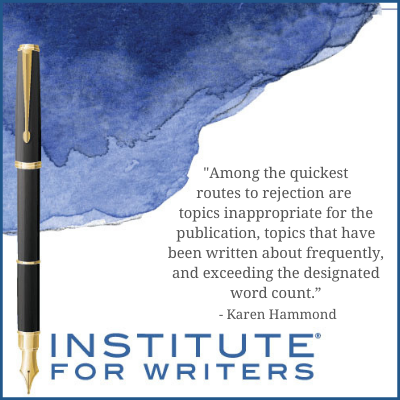
Did you jot down notes about your cat or dog? Pets star in many essays. One of my best-received essays was about Donald, my rescue cat who loved to charge across the room and crash into the open pages of a newspaper whenever anyone sat down to read. Donald also had a purr that could be heard through a closed door and a love of buttered corn on the cob. The focus was that, just like the humans in our families, our pets can have interesting and diverse personalities. When the essay was published, I heard from several readers who thanked me for brightening their day and shared the funny quirks of their own pet.
You will want to research publications that accept essays and read several examples to determine the kinds of pieces the editor selects. There are always exceptions, but chances are an essay on how much better life was in your childhood than it is now will work better in a publication geared to readers in your age group than in a publication for young adults. If you are writing about a hot-button issue such as politics, do you want to write for an audience apt to agree with you, or will your essay share an opposing point of view?
With a topic, audience, and one or more potential publications in mind, you can now begin composing your essay. Essays often have a very limited word count, which you can determine by reading the publication’s guidelines for authors. Consider composing a rough outline or summary first. If it’s obvious from your outline or summary that you cannot cover everything you’ve planned within the designated word count, it’s time to tighten your focus even more.
As with any writing, it’s vital to make your first paragraph count. It should let the reader know what the essay will be about and your approach to it. Ideally, the opening paragraph of your humorous essay will leave the reader smiling and eager to read on. An essay on a serious topic might open with a statistic, a mention of a news event, or your opinion on a controversial subject. As you continue with your essay, stick tightly to your focus.
End your essay with a brief recap or summary. This might include something you have learned, something you hope to see changed, or something you hope the reader will take away and think about. By contrast, humorous essays usually end on a light note.
Essays sometimes involve personal matters. Many writers wonder how personal is too personal. Writing about your battle with addiction or mental illness, for example, may be cathartic for you; writing about someone else’s battle without getting their approval first may make them uncomfortable or angry. There are potential legal issues, too, in writing about matters that another person may prefer to keep private. If you have any doubts, consider consulting an attorney for advice. If you are a member of any writing organizations, check to see if they have an attorney on staff who will review your manuscript for any potential legal problems.
Whether you choose to submit online or to a print magazine or newspaper, it’s essential that you follow the publication’s guidelines. Editors are busy people and pieces that don’t come in as requested are often overlooked or ignored. Among the quickest routes to rejection are topics inappropriate for the publication, topics that have been written about frequently, and exceeding the designated word count.
The publication’s guidelines will usually state when you can expect to hear if your work has been accepted. Replies to essays often come more quickly than replies to short story submissions or nonfiction queries.
Some guidelines state that if you don’t hear from the publication within a certain time period, you can assume your essay has not been accepted. Think positively during the waiting period and hope for an email or phone call telling you that your piece will soon be published.
If it is accepted, congratulations! You’ll be kept busy by friends and strangers checking in with comments about your topic and even suggestions for your next essay. And should it be rejected, remember that it is the essay that is being rejected, not the writer. Tomorrow is another day, with another publication to pitch to, and more topics to write about.
Proving that today’s technology allows us to become successful writers no matter how far we live from the publishing centers, IFW instructor Karen Hammond writes, edits, and coaches fiction and nonfiction writers from an island off the coast of Maine. She has been widely published in national and international magazines and newspapers, taught magazine writing to university juniors and seniors for many years, and is the recipient of several writing awards. She is the author of the popular guidebook, Backroads & Byways of New England. Karen shares her island home with her husband and an office cat named Noelle who stopped by one snowy Christmas and decided to stay.

Plot can be tricky, and, as a writer, you need to be aware of what makes or breaks plot. Take a look at 10 different things to avoid in your own writing.
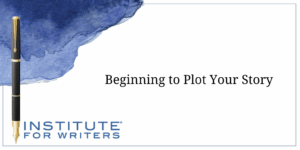
Plot is more than just the chain of events within a story. There are so many elements to plot to consider when writing. Let’s dive into those elements.
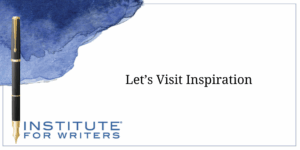
Visiting new places is key to exploring new ideas and finding inspiration. Let’s see the places you can go this summer to spark your next story.
1000 N. West Street #1200, Wilmington, DE 19801
© 2024 Direct Learning Systems, Inc. All rights reserved.

1000 N. West Street #1200, Wilmington, DE 19801
© 2025 Direct Learning Systems, Inc. All rights reserved.

1000 N. West Street #1200, Wilmington, DE 19801
©2025 Direct Learning Systems, Inc. All rights reserved. Privacy Policy.
1 Comment